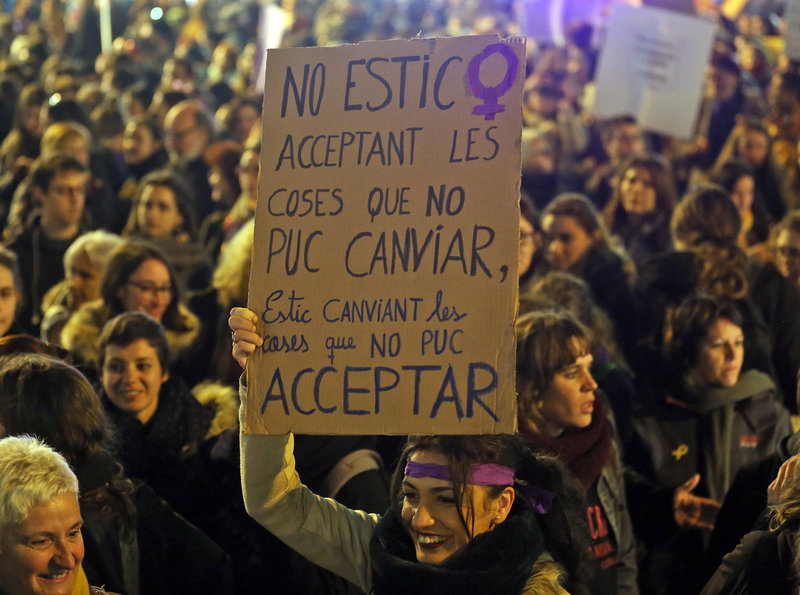Feminism makes a stand
Popular protests against patriarchal system force political parties to adopt a position; many votes at stake, as 60% of undecided voters are women
As the motto of today’s feminist rallies will claim, there are more than 1,000 reasons to take to the streets to demand a fairer society. But something has changed in this past year.
The popular protests of March 8, 2018 marked a turning point in the fight for gender equality, moving consciences, empowering women and showing that it is not so much a gap between the living conditions of men and women, but rather a canyon. And, of course, the number of potential votes at stake has not gone unnoticed by the political parties. According to the latest polls, 60% of all undecided voters are women. Therefore, whether out of conviction, because politicians see legislation as necessary to leave behind centuries of discrimination, or out of necessity, because they cannot ignore an issue that could bring them so many votes, the feminist debate has entered the political arena.
“Last year’s 8-M generated such a huge social rejection towards the patriarchal and sexist system that all political parties had to adopt a position; in fact, by 8 o’clock in the evening, seeing the mass protests, all politicians were claiming to be the biggest feminists,” quipped Montse Sanahuja, head of Gender Social Policies for the CCOO union in Catalonia. Sociologist Marina Subirats agrees, saying it is “very clear that the time has come for everyone to take sides”, while noting that this is also due to feminism’s “internal evolution”.
To promote this change, Subirats, a long-time political activist, awards great importance to “sexual-affective education”, fundamental in building a more equitable world from below.

